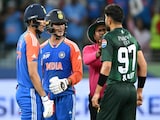Today, India celebrates its Independence Day. On behalf of the Norwegian government, we congratulate you. This is also an occasion to celebrate India's rapid development since 1947.
India was the first country Norway gave aid to. Now India has the world's fastest growing economy and the world's largest population. Norway has an open economy, and for us, the solutions lie in cooperation with global markets and production chains. The government is therefore strengthening its investment in the emerging market India.
When historians look back on our time in the future, one development will appear clearer than others - the shift in economic and geopolitical power from the West to East. We grew up in a world dominated by two superpowers. Today we live in a world with an increasing number of large players, a so-called multipolar world. A number of these new players are emerging in Asia, including India. Geopolitics and its framework are changing.
From Elephant to Tiger
India has experienced strong economic growth since the economic reforms of the 1990s. An expansive service sector, digital infrastructure and a large, well-educated English-speaking workforce make India a very interesting partner. Goldman Sachs predicts that India's GDP will surpass that of the European Union by 2051 and the US by 2075.
Norway is interested in increased international trade; as a small and open economy, we have benefited from that. It is still in our interest to collaborate globally on both political solutions and trade. If we are to achieve Norway's ambition to increase mainland exports by 50 per cent by 2030, we must dare to invest in the major economies in Asia, and not least in India.
What can we offer India - and what can India offer Norway?
Around 120 Norwegian companies have operations in India at present, and important players such as Statkraft, Equinor, Aker Solutions, DNV, Kongsberg, Yara, Jotun and Orkla are well established in the Indian market. More companies are on their way in.
India is today an important supplier of skilled labor to Norway. We have Indian IT engineers who operate IT solutions, who work in the offshore industry, and we have a high number of Indian seamen who work on Norwegian-owned ships.
Norway also has extensive research collaboration with India. India is becoming an increasingly important knowledge nation, and the Norwegian Research Council is spending over Rs 800 million this year to finance joint Norwegian-Indian research projects with at least one Indian research institution. The purpose is to match the best Norwegian research institutions with the best Indian ones and enter the knowledge society of the future together.
The interest from Indian authorities and companies in learning from Norwegian maritime industries is also great, and we see an increased demand for maritime solutions or propulsion systems based on batteries, LNG, hydrogen and ammonia. Digital solutions within the maritime sector are also in demand. India is one of the world's largest farming nations and thus a key market for Norwegian feed suppliers.
The Indian market can be demanding, and one of the government's most important tasks in the work on internationalisation is to contribute to the best possible framework conditions for Norwegian business abroad. The Minister of Trade and Industry has visited India twice this spring to promote Norwegian business and make progress in the negotiations on an EFTA-India free trade agreement.
A global community of destiny
Finally, Norway, India and the world are woven together in the global community of destiny surrounding climate change.
Like Norway, India is putting their efforts on the green shift. The country's CO2 emissions have tripled since 1990 and India has political ambitions for a green industrial boost that will make the country climate neutral by 2070. This is crucial for the world to succeed in the two-degree target.
It also provides significant opportunities for Norwegian exporters and service providers who are far ahead with solutions in solar, wind, hydropower, hydrogen, batteries, energy storage systems and the circular economy. We are strong in technology, while India has large scale. A large market contributes to the fact that the costs of the new green solutions can come down. India and Asia's green transition will offer great opportunities for Norwegian business and industry that is ready to invest in these sectors.
Henrik Ibsen writes in the play "Peer Gynt", "When the world spins, we spin with it". In a changing world, Norway must not just spin along, we must spin with it. In that case, close cooperation with emerging countries and markets such as India is of crucial importance. It is both in our national interest and in our common good. Together we are stronger, and we will succeed better.
(Anniken Huitfeldt is Noweigian Foreign Minister and Jan Christian Vestre is Norway's Minister for Trade and Industry)
Disclaimer: These are the personal opinions of the authors.















